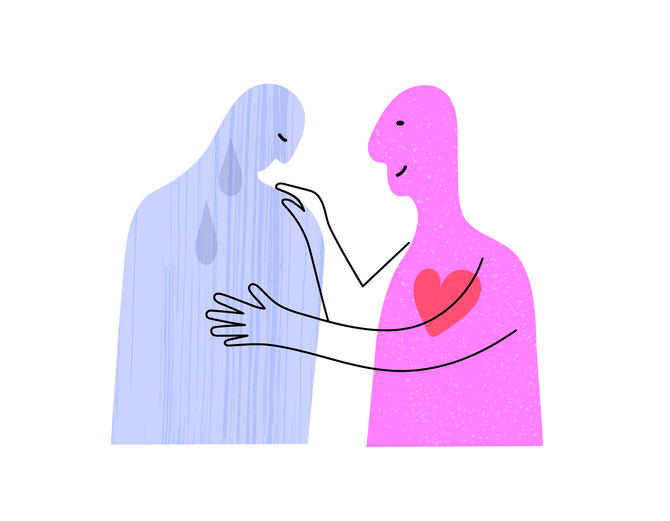Experimental research and polls by professional organizations have confirmed how both giving and receiving small acts of kindness can help people feel good—and improve their mental health.
Everyday simple acts of kindness can contribute to improving your mood, reducing your stress, and possibly alleviating symptoms of depression or anxiety. What’s more, what might seem like a small friendly gesture could have a greater impact than you might think in the healing process.
What all these acts have in common is the development (even if temporary) of social ties, vital connections for achieving greater wellbeing in life.
The inclusion of social activity-related wellbeing interventions helps heal mental conditions that tend to break bonds of kindness by disintegrating social relationships. What’s more, participating in acts of kindness helps people with depression and anxiety divert attention from themselves and stop thinking about their own symptoms.
Kindness is also a result of culture. Individualist societies usually view acts of kindness as a choice to help someone, whereas collectivist societies tend to view kindness as a part of life and spread it wherever they go as one of their core values.
Studies have connected it to happiness levels in some Latin American countries as, during a crisis, societies maintain these bonds of kindness at the center of the social fabric.
The extent of this positive affect makes communities in the region extremely interconnected. At the top of the list are: Paraguay, Panama, and Costa Rica.
In the American Psychiatric Association’s most recent Healthy Minds poll, conducted by Morning Consult among 2,210 adults from October 16 to 19, 2023, 89% of respondents said that showing another person an act of kindness made them feel significantly, somewhat, or a little better, and 90% said that receiving an act of kindness made them feel better.
When they received an act of kindness, respondents said that they felt happier (56%) and grateful (51%) and less likely to feel indifferent (3%). The poll also asked Americans which were the three places where they would be most likely to witness an act of kindness:
• Grocery store (44%)
• Places of worship (25%)
• At home (25%)
• In their neighborhood (25%)
The poll also asked what they were most grateful for this holiday season. The majority answered their family (70%), their partner (33%), their home (32%), and their physical health (31%). People were also grateful for their community (3%), their hobbies (6%), and their work (10%).
Many acts of kindness are spontaneous, but they can also be planned. Either way, it’s good for your brain: studies reveal that there is a neural link between generosity and happiness.
Some of the spontaneous or planned acts of kindness or moments of connection that science has proven to be beneficial are:
• Donating blood
• Offering to cook for a sick friend or family member
• Making someone laugh
• Helping someone with housework
• Buying something and talking to the seller
• Spending time volunteering, such as at a food bank
• Offering your seat on the bus to an elderly person
• Flashing your lights at another driver to thank them for letting you in
• Smiling, saying thank you, saying “hello” and “goodbye”
• Helping a passerby with directions
• Saying “I’m proud of you” or “I love you” more often
• This holiday season, being thankful for what you have, what you’ve earned, and your family, friends, life, and health.
This story was produced using content from original studies or reports, as well as other medical research and health and public health sources cited in links throughout the article.
